How to buy a motorcycle in Thailand as an expat?
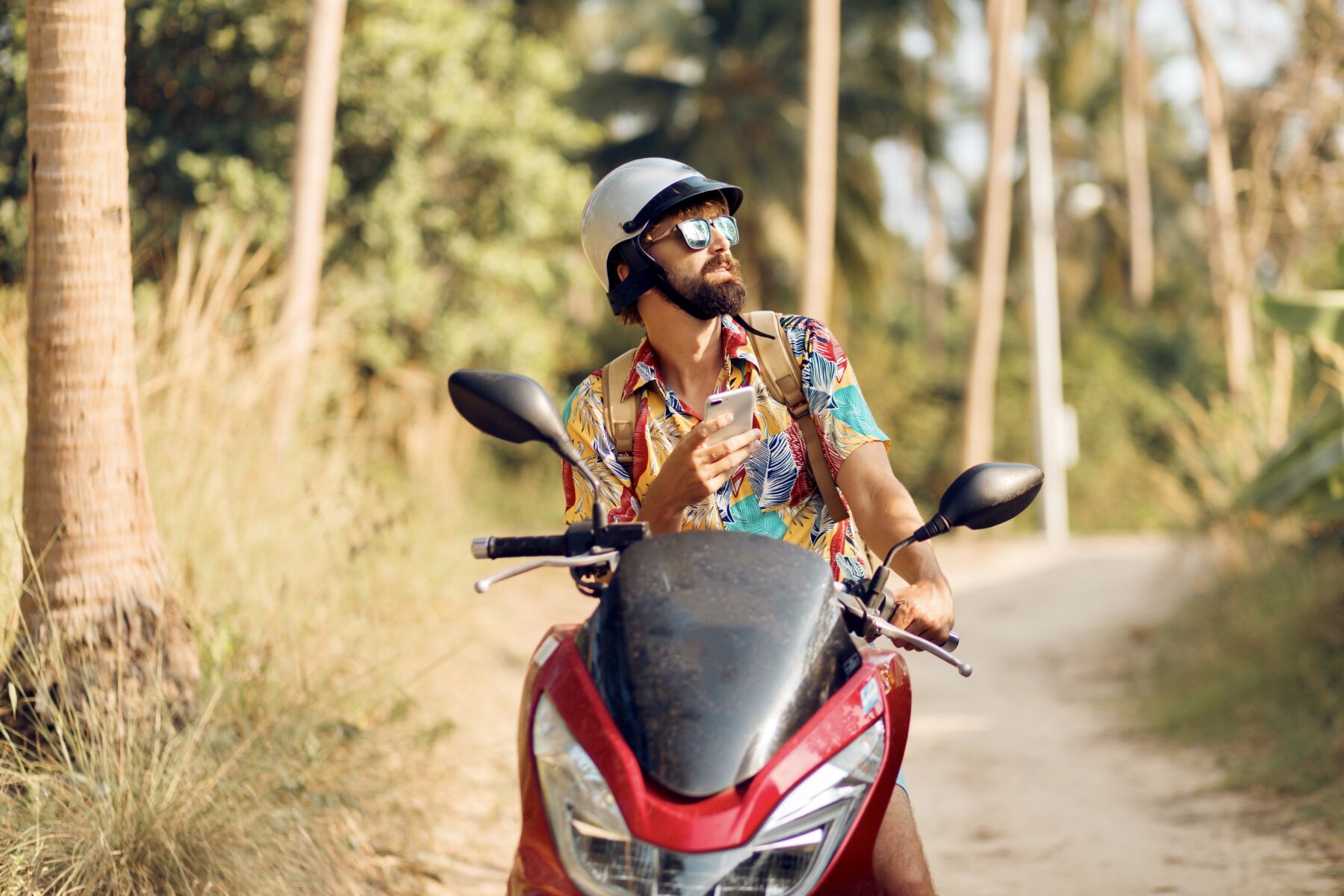
Riding motorcycles is just about the easiest way to get around. If you rented one before, you probably thought about buying a motorcycle in Thailand too, and you are not alone in this thought. Motorcycles are a popular choice for locals and expats alike, offering an affordable way to navigate busy streets or zip around narrow alleyways. With over 20 million motorcycles registered in the country, it’s clear that two wheels are the preferred mode of transport for many.
But before you make the move, as an expat, it is crucial to understand how Thai law works when it comes to buying and registering a motorcycle.
What type of motorcycle should you buy in Thailand?
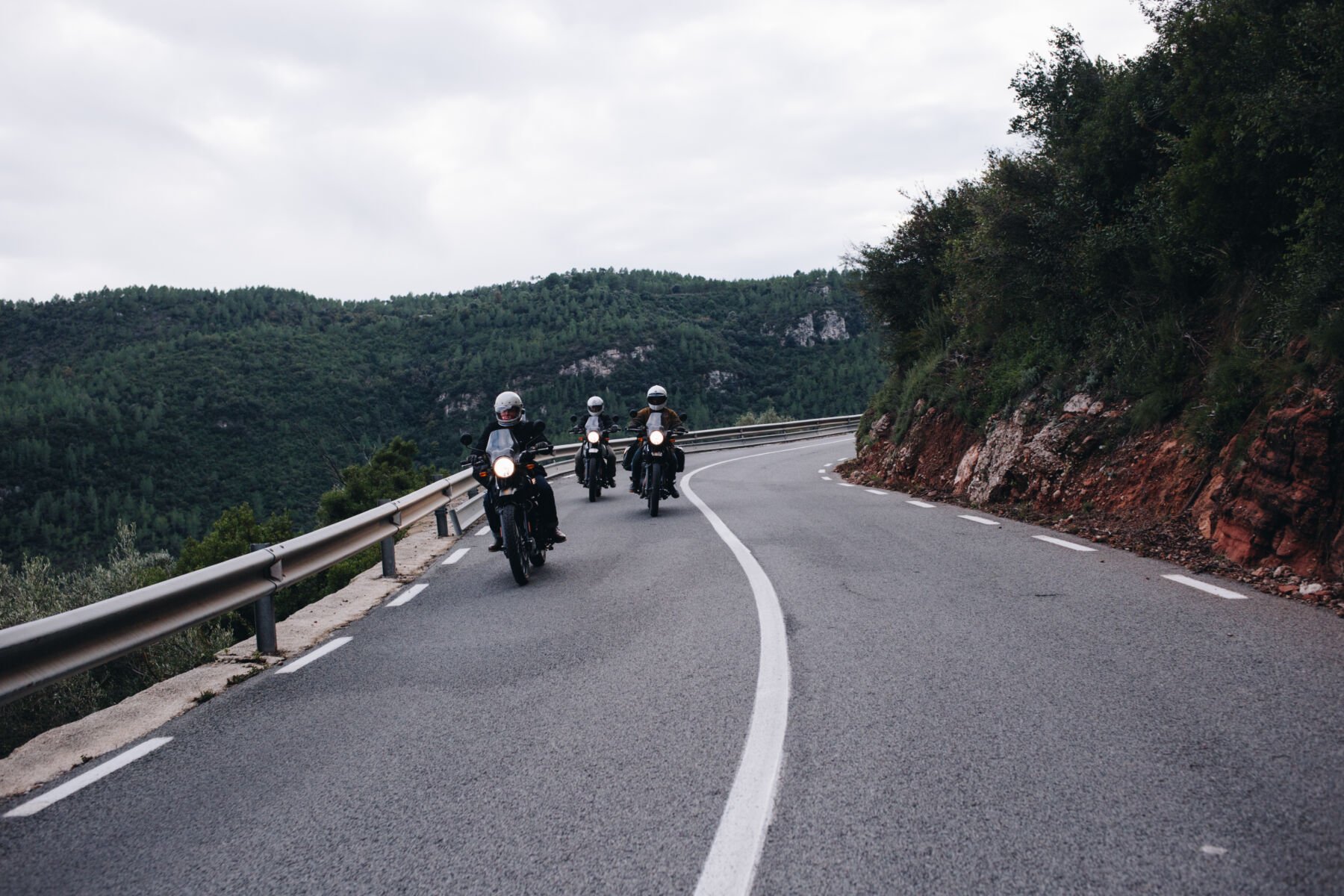
The first step in buying a motorcycle is to assess your needs. Consider factors like your budget, the type of riding you’ll be doing, is the bike beginner-friendly, and how often you’ll use the bike. Will you be riding primarily in the city, or do you plan on taking longer trips across the country? Do you need a bike with more power, or is a basic model sufficient? These questions will help guide your decision-making process and will help narrow down the types of motorcycles in your consideration.
For example, if you need a nifty motorcycle for your daily grocery run, a scooter will get the job done. But if you are the adventurous type looking for cross-country rides, then an adventure bike may be your forte.
New or used?
When deciding to buy a motorcycle in Thailand, the choice between a new and a used motorcycle is crucial. Each option has its advantages and drawbacks, so it’s essential to weigh them based on your needs.
New motorcycles come with several benefits. First, you get a manufacturer’s warranty. If anything goes wrong, you can get it fixed without paying extra for issues that you are most likely not responsible for. New bikes are usually in perfect condition, so there is less risk of mechanical issues. However, new motorcycles are more expensive. They lose value quickly as soon as you ride them out of the showroom, which might be a concern if you plan to sell the bike later.
On the other hand, used motorcycles might be a better option if you’re looking to save money. These bikes are generally cheaper and could come with useful modifications or accessories added by the previous owner. But most importantly, they don’t depreciate as much as new ones, which means you can sell them later without losing a lot of money. However, buying a second-hand motorcycle means you must be cautious. Inspect the bike thoroughly and ensure that everything is in working condition.
Here are some key areas to look for:
-
- Engine and transmission: Listen for any unusual noises when starting the engine, leaks around gaskets and seals, check the clutch, and see if the bike shifts through gears seamlessly.
- Brakes and suspension: Check the brake pads for sufficient thickness, brake rotors for any major wear and tear, amount of brake fluid and any discolouration, and inspect the front and rear suspensions for any leaks. Be sure to test the suspension by pushing up and down on the handlebars.
- Tyres and wheels: Check for tyre depth and overall condition, check the wheels for any signs of damage, and spin the wheels to see if they operate smoothly without any wobbles
- Electrical systems: Test all lights, indicators, horns and electrical components for proper functioning. Check the battery condition and make sure the bike starts easily.
- Appearance and condition: Check the frame for any cracks, bends, dents or signs of welding, examine the body panels for any damages or mismatched colours, ensure the seat is in good condition, and most importantly, look for any rust damages.
So, whether you go for a new bike or a used one, make sure it fits your budget and needs. Do some homework and make a well-informed decision before buying a motorcycle in Thailand.
Where to buy motorcycles in Thailand?
After deciding whether to buy a new or used motorbike, the next step is to figure out where to make your purchase. In Thailand, there are two main options to consider.
Dealerships
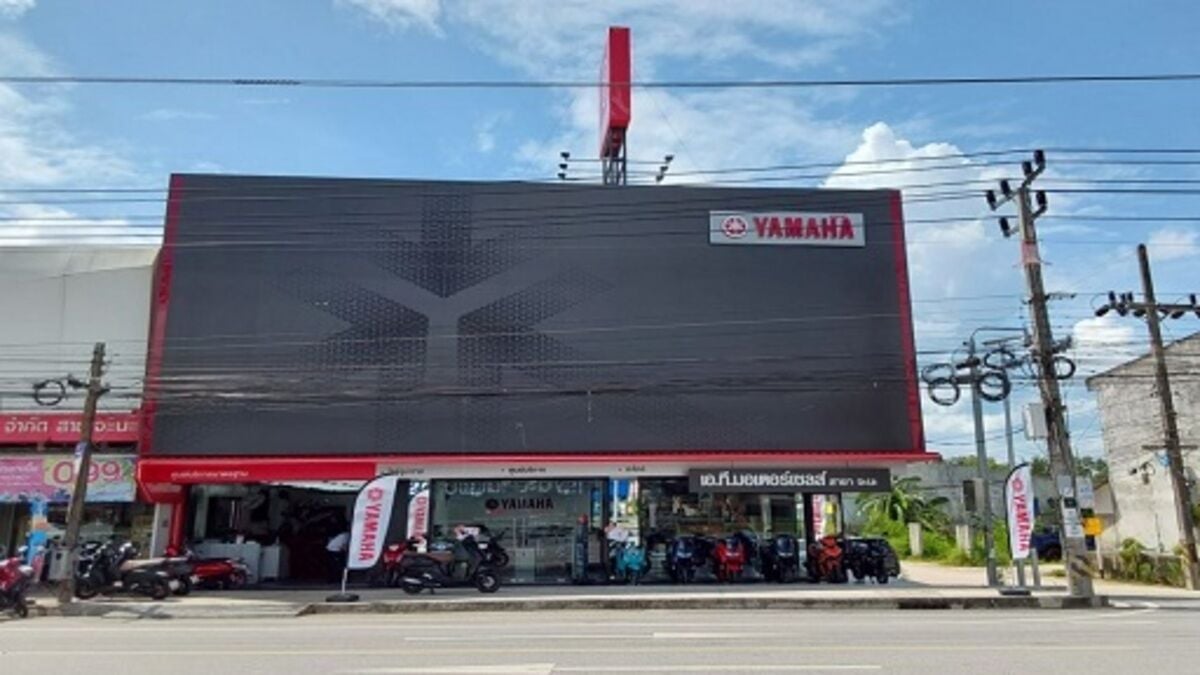
Buying a motorcycle from authorised dealerships is a straightforward and safe option. Dealerships in Thailand sell bikes from well-known brands such as Honda, Yamaha, Ducati, Vespa and so on. When you buy from a dealership, you get the peace of mind that the motorcycle is in good condition and comes with all the necessary paperwork. Dealers also help with the registration process, so you don’t need to worry about any paperwork hassle. Many dealerships offer warranties, which can be a big plus for new motorcycle owners.
Dealerships are easy to find in most cities across Thailand, with many displaying their motorcycles on the pavement. Larger dealerships often have staff who speak English, helpful if you’re an expat. Look around, compare different models and take a test drive if you think it is necessary.
Used markets
If you’re thinking of buying a second-hand motorcycle, the used market offers many options. Online platforms like Facebook Marketplace or local classifieds are great places to start. Additionally, you could also have a look at second-hand motorcycle tents. These different options let you compare different bikes and prices easily. However, always be careful when dealing with private sellers.
When buying a used motorcycle, always meet the seller in a public place. Check the bike carefully for any mechanical issues. Make sure all the papers are in order, such as the green registration book and insurance documents. It’s a good idea to take a knowledgeable friend with you if you’re not sure what to look for. This will help you avoid any unexpected repairs or legal issues later.
What are the required documents?
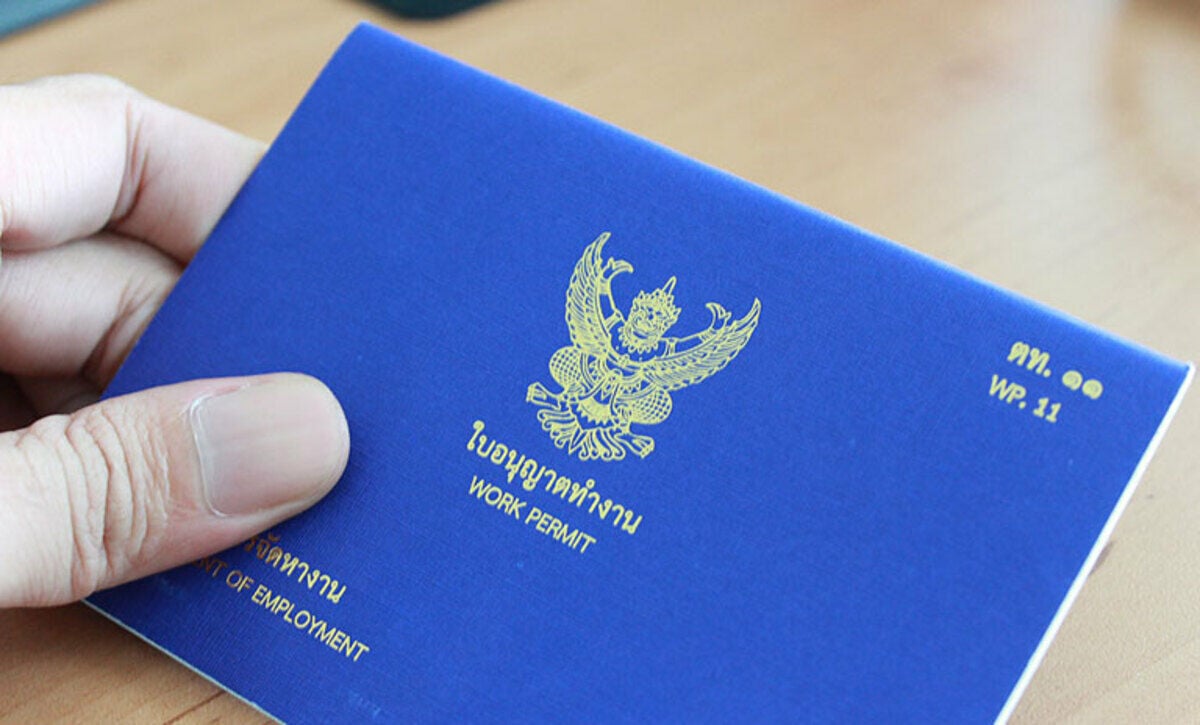
Before buying a brand new motorcycle in Thailand, you need to first make sure that you have all the documents that are needed. For expats, the documents needed to buy a brand-new motorcycle in Thailand are similar to the ones needed to buy a car. Here is what you will need.
-
- Passport: Include a copy of your passport’s main page, the current visa stamp, and the TM card (departure card).
- Proof of residence: This can be a Certificate of Residence from Thai Immigration, a Work Permit (all pages), or an Affidavit of Residence from your embassy.
When buying a used motorcycle, you would need some documents in addition to your passport copies and proof of residence.
You can register the motorcycle at your local DLT office once you have all these documents. But if you are looking to save some time and effort, buying a motorcycle from a dealership simplifies things. They help with the paperwork, making it a smoother process.
Registration process after buying a motorcycle in Thailand
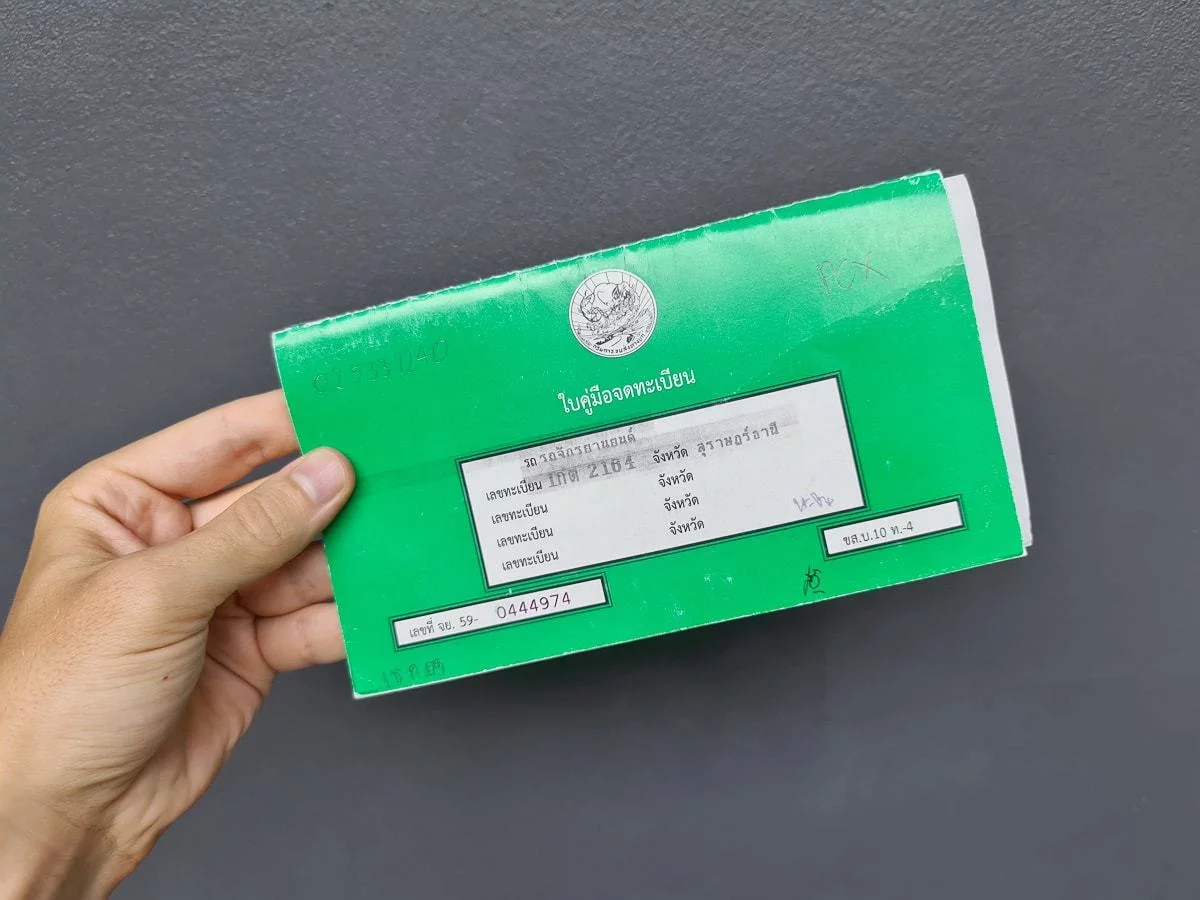
When you buy a motorcycle from a dealership, they’ll usually take care of most of the work for you. You’ll get a temporary registration in the form of a red licence plate as the dealer completes the registration process to obtain the permanent white licence plate. This plate lets you ride legally while waiting for permanent registration for 60 days. But beware, with the red plate, you can’t ride at night or leave the province.
After about a month, the dealer will get the permanent registration documents and the Green Book from the DLT. You’ll need to go back to the dealership to collect these documents. Make sure the details in the Green Book match your name and the motorcycle. This way, everything is official, and you are free to ride around without any limitations.
One thing that you will have to keep track of is to renew your motorcycle’s road tax annually. Cars will have them displayed on the window but on bikes, it’s often stored in a container and displayed somewhere visible along the bike. It has to be renewed annually at the DLT office, or a vehicle inspection facility.
Used motorcycles
If you’re buying a used motorcycle, you’ll have to do more of the work yourself. Start by checking if the Vehicle Identification Number (VIN) and engine number match those in the Green Book. This ensures that the bike’s paperwork is correct.
Next, it is ideal for both you and the seller to visit the DLT together. Bring along the Green Book, ownership transfer form, proof of residence, and the seller’s ID. The DLT will check all these documents. If everything’s fine, they’ll process the ownership transfer. Keep in mind there will be a 200 baht fee for the change of ownership. But if you don’t want to handle this process by yourself, there are services available to help you with the name transfer, registration, and tax and insurance services, albeit at a higher cost. Be sure to look around and compare the prices of different service providers.
Compulsory insurance
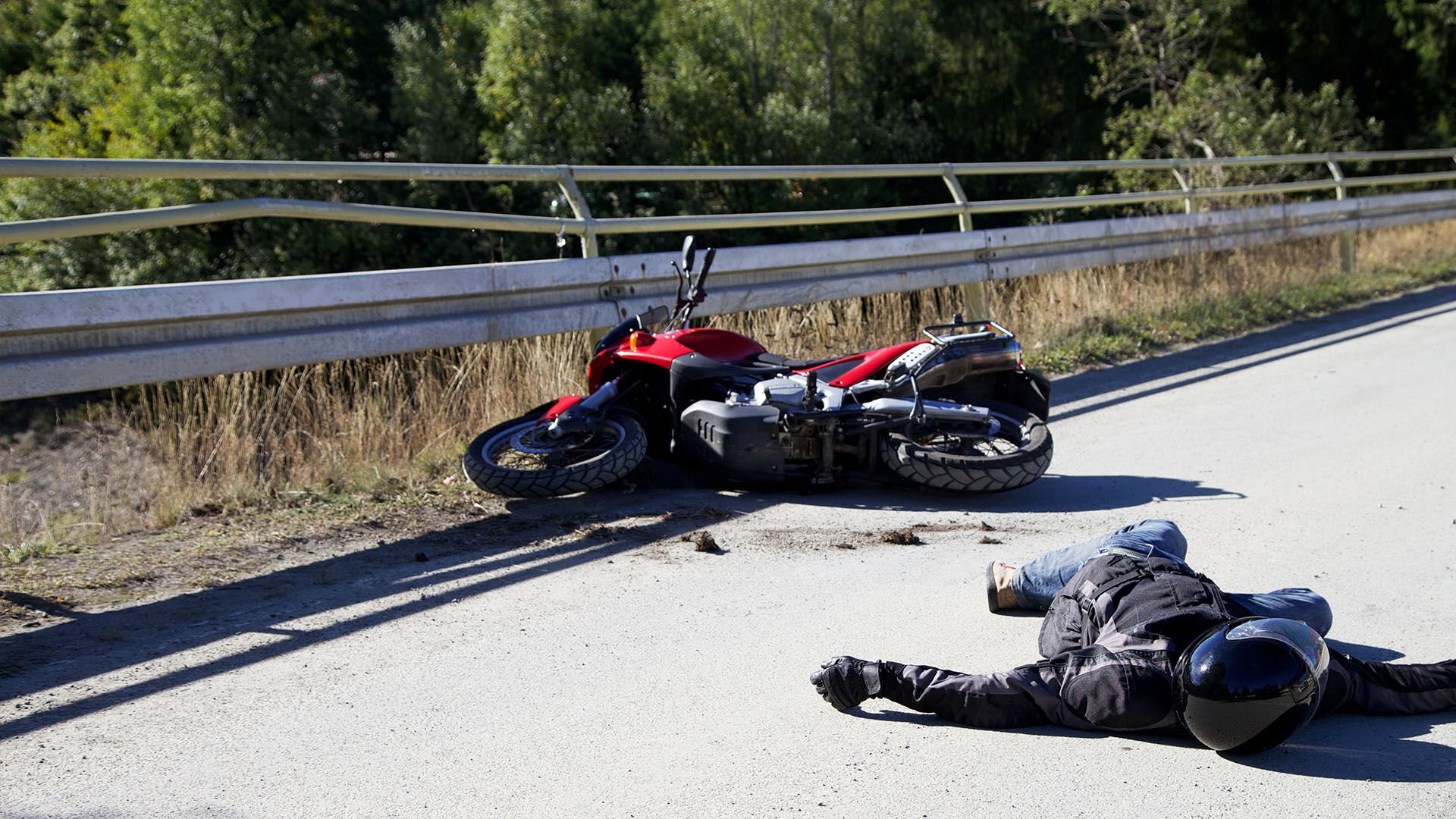
When buying a motorcycle in Thailand, you need to get Compulsory Third-Party Liability Insurance (CTPL). It’s a legal requirement and must be renewed every year. CTPL covers medical costs for third parties if they’re hurt in an accident involving your bike.
However, it won’t cover damages to your motorcycle or other properties. For instance, if you hit a pedestrian, CTPL will cover their medical expenses but not the repair costs for your bike. The cost for CTPL varies from 160 to 645 baht per year. You can renew it at the DLT, through insurance companies, or with authorised agents. Always have this insurance up to date to avoid legal issues.
Private insurance
While not mandatory, private insurance is highly recommended if you want extra protection. There are different types to consider based on your needs.
| Type of Insurance | Coverage Details | Best For |
|---|---|---|
| Type 1 Insurance | The most comprehensive option; covers theft, fire, accident damage, and third-party liability. | New or expensive motorcycles |
| Type 2+ Insurance | Provides strong coverage similar to Type 1, but with some limitations, such as only covering accidents involving identified parties. | Mid-range motorcycles needing good coverage |
| Type 3 Insurance | The most basic level of insurance, primarily covering third-party liability. | Older or less valuable motorcycles |
When choosing private insurance, think about the value of your motorcycle and what you need. Policies are available from local providers or online. Always read the fine print to understand what is and isn’t covered. For example, some policies may not cover damage if you modify your motorcycle without informing the insurance provider. Adding private insurance can save you from hefty costs if something goes wrong.
Buying a motorcycle in Thailand can be a smooth and rewarding experience if you understand the process and follow the necessary steps. Whether you decide to buy a new or used motorcycle, ensure you gather all required documents, complete the registration process, and secure the appropriate insurance. By doing so, you’ll not only comply with Thai laws but also enjoy the freedom and convenience that comes with owning a motorcycle.
How to get a motorcycle licence in Thailand for expats
Obtaining a motorcycle licence in Thailand for expats is usually a straightforward process, you can either attend private classes at driving schools (a pricer option but less time-consuming) or get it done at the DLT Office.
If you opt for the driving school option, be prepared to fork out upwards of 3,000 baht, depending on the place. But if you are getting it done at the DLT, you should expect to pay 105 baht in total. But no matter which option you choose, getting a motorcycle licence grants you the freedom to not only roam around the roads of Thailand but it could also be used as an international driving permit in 10 other ASEAN nations.
Eligibility requirements:
- For a learner’s permit, you must be 15 years of age (18 years old for a full licence)
- Hold a valid visa (a tourist visa is acceptable) and must be residing in Thailand
- Be physically and mentally fit to operate a motorcycle
Required documents:
- Copies of your passport and valid visa
- A medical certificate from a local clinic or a hospital (dated within the past 30 days)
- A passport-sized photo
- Proof of residence in Thailand (rental contract, work permit, etc)
What is the process?
After gathering all the required documents, make an appointment with a driving school, or head to your local DLT office early in the morning to get a ticket and submit all the necessary documents.
Once your queue arrives, a short physical test will follow (colour blindness, depth perception, and reflexes). After the physical test, you will be placed in a five-hour road safety training course. Make sure to pay attention because you’ll need to score above 90% on the multiple-choice theory test. Once you complete a practical riding test, you’ll be on the road in no time.
Do be mindful that your initial licence is only valid for two years. From 90 days until the expiry date, you can update your licence to a full licence (five-year validity) at 255 baht.
Useful resources about motorcycles in Thailand
Latest Thailand News
Follow The Thaiger on Google News:


























